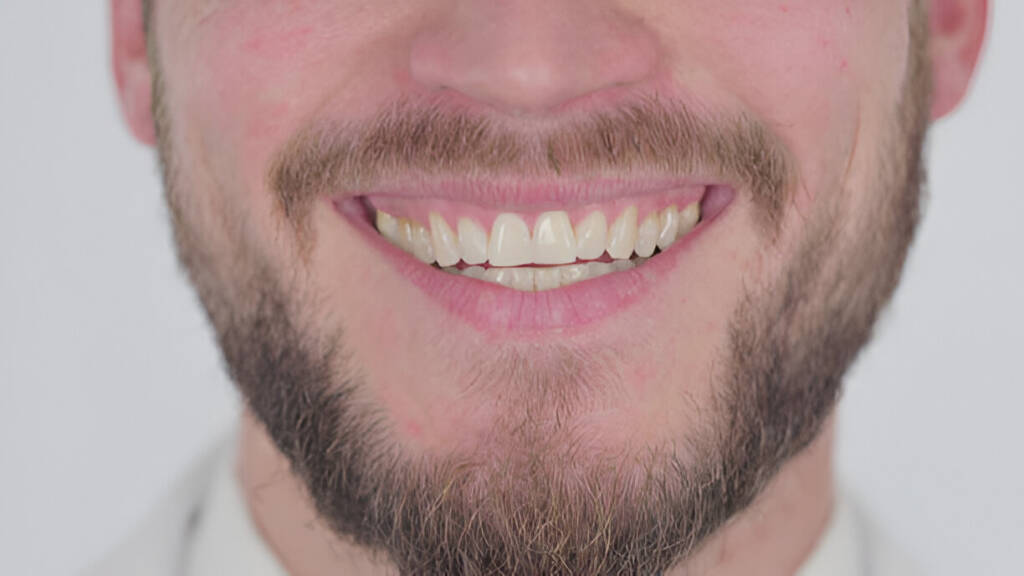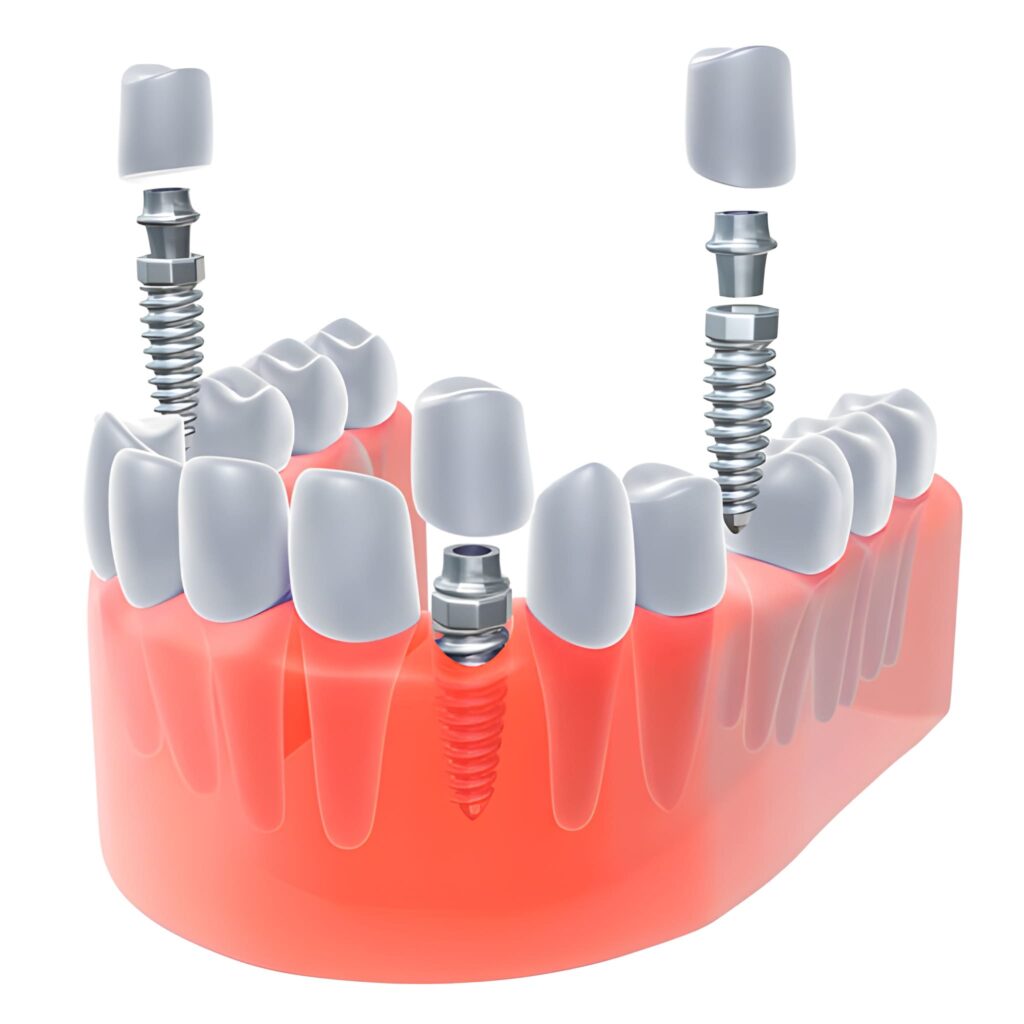Do you have crooked teeth? Are you exploring ways to fix them? Composite bonding might be your solution. This popular treatment is quick and cheap. It enhances your smile. In this article, we will explain how composite bonding works. We will cover its benefits, limits, costs, and aftercare tips. By the end, you’ll understand if composite bonding is right for you.
What is Composite Bonding?
Composite bonding is also called cosmetic bonding. It involves applying a tooth-coloured resin to the teeth. This resin can improve the look of your teeth. It does so by fixing their shape and color. It also hides imperfections like cracks or gaps. The process is simple and can usually be completed in a single visit to the dentist, making it an attractive option for many.
How Does Composite Bonding Work?
The Procedure
- Shade Matching: The dentist uses a shade guide to select the resin colour that matches your natural teeth.
- Teeth Cleaning: Your teeth are thoroughly cleaned to ensure a strong bond.
- Tooth Preparation: In some cases, the dentist may slightly trim the teeth.
- Etching: The dentist applies an acidic gel to the teeth’s surface to help the bonding material adhere.
- Application: The resin is applied and shaped to achieve the desired look.
- Curing: A special light hardens the resin.
- Final Adjustments: Additional layers of resin may be added, followed by a bite check and polishing.
Correcting Crooked Teeth
Composite bonding can effectively fix minor misalignments and gaps between teeth. The dentist skillfully sculpts the resin to create a straighter, more uniform appearance. However, severe misalignment or big bite issues may require braces.
Benefits of Composite Bonding
Quick and Simple
Composite bonding is a straightforward procedure that can usually be completed in one visit. This means you can walk into the dentist’s office with crooked teeth and leave with a more confident smile on the same day.
Affordable
Compared to other cosmetic dental treatments, composite bonding is relatively affordable. Prices range from £200 to £500 per tooth. The price depends on the case’s complexity and the dentist’s expertise.
Natural-Looking Results
The resin used in composite bonding is carefully matched to the color of your natural teeth. This creates a seamless and natural look. The dentist can also shape the resin to blend perfectly with your other teeth.
Minimally Invasive
Unlike veneers or crowns, composite bonding requires minimal removal of tooth enamel. This makes the procedure less invasive and helps preserve the natural structure of your teeth.
Not Suitable for Severe Cases
Composite bonding is great for small fixes. But, it may not work for severe misalignments or complex bite issues. In such cases, orthodontic treatments like braces or aligners might be more effective.
Durability
Composite resin is not as durable as materials used in veneers or crowns. With proper care, bonded teeth can last 5 to 10 years. However, they are more susceptible to chipping and staining compared to veneers.
Staining
The resin can stain over time. This is especially if it is exposed to substances like coffee, tea, or tobacco. You should keep up good oral hygiene. Also, avoid foods and drinks that stain. This will keep your bonding looking its best.
Cost of Composite Bonding
Composite bonding is one of the more cost-effective cosmetic dental treatments. Prices in the UK typically range from £300 to £450 per tooth. The cost depends on factors. These factors include the complexity of the procedure, the dentist’s skill, and the materials used. Some dental practices also offer financing options to help manage the cost.
Aftercare Tips for Composite Bonding
To make your composite bonding last, follow these aftercare tips:
- Good Oral Hygiene: Brush your teeth twice a day, floss daily, and use mouthwash.
- Avoid Staining Foods and Drinks: For the first two days after the procedure, avoid tea, coffee, and tobacco. These substances can stain the resin.
- Avoid Hard Foods: Avoid biting into hard foods or objects, as this can chip the bonding.
- Regular Dental Check-ups: Visit your dentist every six months for a check-up. This allows your dentist to monitor the condition of the bonding and make any necessary adjustments.
- Stay Hydrated: Drink water after meals to rinse away food particles and bacteria.
Is Composite Bonding Right for You?
Composite bonding can be a great option for those with minor crooked teeth, gaps, or discolouration. It offers a quick, affordable, and minimally invasive way to enhance your smile. However, if you have severe misalignment or bite issues, you may need to consider other orthodontic treatments.
Before making a decision, consult with your dentist. They can assess your teeth, discuss your goals, and recommend the best treatment plan for you.
Transform Your Smile with Cove Dental and Implant Centre
Are you ready to achieve the smile of your dreams? At Cove Dental and Implant Centre, our experienced team is here to help you every step of the way. We specialise in composite bonding. We also offer other cosmetic dental treatments to enhance your smile. Book a consultation today. You will discover how we can make your teeth into a beautiful, confident smile. Contact us now to schedule your appointment!
Conclusion
Composite bonding is an effective and affordable solution for fixing minor crooked teeth. The treatment is quick and minimally invasive. It gives natural-looking results. It’s no wonder it’s becoming so popular. Follow the aftercare tips and ask your dentist. Then, you can enjoy a beautiful, confident smile for years.
FAQs About Composite Bonding for Crooked Teeth
How long does composite bonding last?
Composite bonding can last 5 to 10 years with proper care, including regular brushing, flossing, and avoiding hard foods that might chip the resin.
Is the composite bonding procedure painful?
No, composite bonding is a painless procedure. It usually doesn’t require anesthesia; most patients feel comfortable throughout the treatment.
Can composite bonding fix all crooked teeth?
Composite bonding is best for minor misalignments. Severe crookedness or bite issues may require orthodontic treatments like braces or aligners.
How much does composite bonding cost?
The cost typically ranges from £300 to £450 per tooth, depending on the complexity of the case and the dentist’s expertise.
What should I avoid after getting composite bonding?
Avoid staining foods and drinks like coffee and tea for the first 48 hours. Also, refrain from biting into hard foods to prevent chipping.
Can composite bonding be reversed?
Yes, composite bonding can be reversed. The resin can be removed if necessary, and the tooth can be restored to its original condition.
How long does the composite bonding procedure take?
The procedure usually takes 30 to 60 minutes per tooth and can often be completed in a single visit to the dentist.
For more information, Click here…





